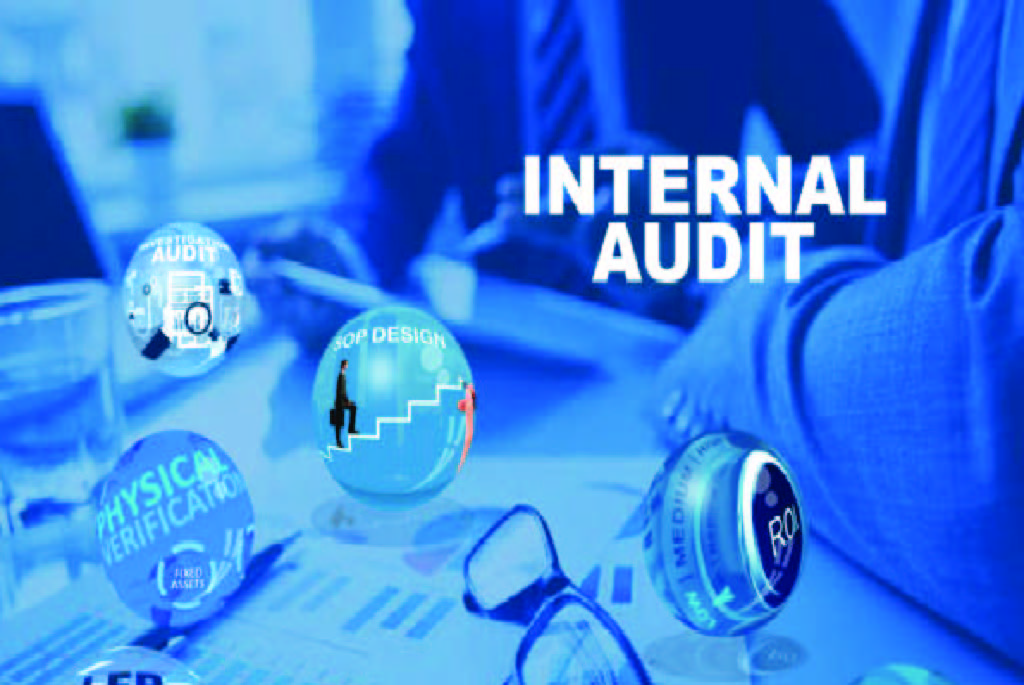Internal Audit
- Home
- Internal Audit
Internal Audit
- Financial Audits:
This involves reviewing an organization’s financial statements, transactions, and accounting processes to ensure accuracy, compliance with accounting standards, and the prevention of fraud. - Operational Audits:
These audits focus on the efficiency and effectiveness of an organization’s operations. They examine processes, workflows, and procedures to identify areas for improvement and cost savings. - Compliance Audits:
Ensuring that the organization is complying with relevant laws,
regulations, and internal policies is a crucial aspect of internal auditing. Compliance audits help identify and rectify any potential legal or regulatory issues.

- Risk Management Audits:
Internal auditors assess an organization’s risk management processes to identify potential risks and vulnerabilities. They make recommendations for mitigating these risks and improving risk management practices - Information Technology (IT) Audits:
With the increasing reliance on technology, IT audits have become essential. These audits evaluate the security, integrity, and availability of an organization’s IT systems and data. - Vendor and Supplier Audits:
Organizations often rely on external vendors and suppliers for goods and services. Internal auditors review contracts, performance, and relationships with these external parties to mitigate risks and ensure compliance. - Quality Audits:
In industries such as manufacturing, quality audits focus on the production processes to ensure that products meet specified quality standards and regulatory requirements. - Environmental and Sustainability Audits:
As environmental concerns grow, internal auditors may assess an organization’s environmental impact and sustainability efforts to ensure compliance with environmental regulations and corporate social responsibility goals. - Fraud Audits:
Internal auditors investigate and assess the risk of fraudulent activities within the organization. They may conduct forensic audits to uncover financial irregularities and fraud schemes. - Governance Audits:
Governance audits focus on the structure and effectiveness of an organization’s governance framework, including the board of directors, committees, and decision-making processes. - Human Resources Audits:
Assessing HR policies, procedures, and practices can help ensure fair treatment of employees, compliance with labor laws, and effective talent management. Supply Chain Audits:
In global supply chains, auditors review supply chain processes, logistics, and vendor relationships to optimize efficiency and minimize risks.

